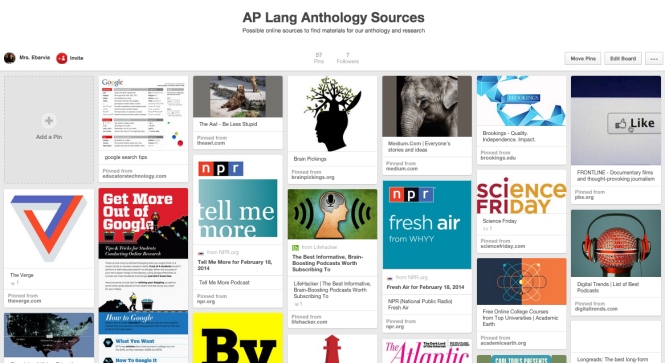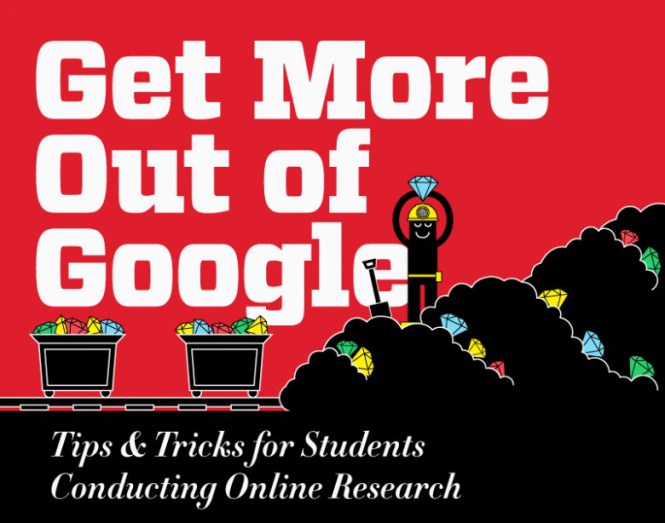Next week you’ll spend a class period responding / writing to an AP Lang argument prompt. Below are some sample prompts to give you taste of what tomorrow’s prompt may look like.
TIPS
Financial independence is the goal of most people as they enter adulthood. Being certain that there will be enough money for the necessities of life—food and shelter—is the key to this independence. In A Room of One’s Own, Virginia Woolf talks about gaining her financial independence via the death of an aunt, who left her five hundred pounds per year for life. From that point on, Woolf no longer had to think about how she would earn a living and could devote herself freely to writing anything she felt like, regardless of its promise of monetary return. She describes her state of mind in the days prior to receiving word of her legacy as being filled with “the poison of fear and bitterness” in that she was required “always to be doing work that one did not wish to do, and to do it like a slave, flattering and fawning.”
Is it better to have a legacy — a regular income that comes to you without work — or is it better to have to work for a living? Using compelling supporting evidence, defend, challenge, or qualify Woolf’s position that income from a legacy brings not only financial freedom but intellectual freedom as well.
NATURE
In paragraph 19 of the excerpt from Silent Spring (pp. 888–94), Rachel Carson writes, “Along with the possibility of the extinction of mankind by nuclear war, the central problem of our age has therefore become the contamination of man’s total environment with such substances of incredible potential for harm—substances that accumulate in the tissues of plants and animals and even penetrate the germ cells to shatter or alter the very material of heredity upon which the shape of the future depends.” Write an essay in which you defend, challenge, or qualify the validity of that statement.
GENDER / STEREOTYPE
In paragraph 6 of her essay “The Myth of the Latin Woman” (pp. 546–51), Judith Ortiz Cofer makes the following statement:
Mixed cultural signals have perpetuated certain stereotypes — for example, that of the Hispanic woman as the “Hot Tamale” or sexual firebrand. It is a one-dimensional view that the media have found easy to promote. In their special vocabulary, advertisers have des- ignated “sizzling” and “smoldering” as the adjectives of choice for describing not only the foods but also the women of Latin America.
Write an argument explaining whether you agree or disagree with this assertion as it applies to the media today. You may work with Cofer’s example of Latin American women, or you may choose another group (e.g., African Americans, older people, people from the Middle East) to consider in terms of stereotypes that the media promotes. Support your opinion with evidence from your experience, observation, or reading.
SPORTS
Yesterday, the medical journal Neurology published a study suggesting that professional football players are four times more likely to die from the Alzheimer’s disease and ALS (Lou Gehrig’s disease) than the general population. This is just the most recent addition to a growing body of evidence linking football to neurodegenerative disease. . . .
. . . [I]n local youth football leagues, . . . children as young as eight years old practice up to six hours a week in full pads.
— KENDRA GAGNON, PEDIATRIC PHYSICAL THERAPIST
Football in America is part of the everyday lives of millions of fans; in the NFL alone, football is a $9 billion industry. More and more evidence supports the fact that football simply cannot be made safer with better helmets or different rules. Some have suggested that football be regulated more firmly by government agencies; still others have suggested that we begin the process of dismantling pro football since the game is just too dangerous.
Take a position on football in American family life, and discuss the pros and cons that parents might consider when deciding whether or not to involve their children in the sport. In a fully developed essay, weigh the various sides of the issue and draw conclusions.
CULTURE
Matador.com, a Web site devoted to global travel and culture, recently featured an article on eight inventions that create global culture: shortboards (for surfing), food trucks, music samplers (MPCs), digital cameras, skateboards, DJ mixers, spray paint (for graffiti), and the Internet. David Miller, the writer of the piece, says, “This is how culture mixes. It is driven by the youth.”
Do you agree with Miller’s view? Defend, challenge, or qualify Miller’s statement. You may want to include one or more of the inventions he has cited, or think of some of your own to support your position. Develop your essay fully, paying close attention to supporting your argument in a convincing manner.
POLITICS
In paragraph 7 of “Shooting an Elephant” (pp. 1100–1105), George Orwell observes that “when the white man turns tyrant it is his own freedom that he destroys,” and that “[h]e wears a mask, and his face grows to fit it.” Consider the implications of these statements concerning human nature. Write an essay in which you support, refute, or qualify Orwell’s paradox and metaphor. Refer to your reading, knowledge, or experience to support your argument.
TIPS
- The following prompts ask you to respond with a convincing argument. First, determine how you will respond (your thesis – will you defend, challenge, or qualify?).
- Then read the prompt again and determine what “available means” you would use to support your thesis.
- You’ll notice that the prompts that follow correspond loosely with the six essays we’ve recently read. Remember that as your argue, you can use “all available means of persuasion” to respond, including anything you’ve read, in addition to personal experiences and other observations.
Financial independence is the goal of most people as they enter adulthood. Being certain that there will be enough money for the necessities of life—food and shelter—is the key to this independence. In A Room of One’s Own, Virginia Woolf talks about gaining her financial independence via the death of an aunt, who left her five hundred pounds per year for life. From that point on, Woolf no longer had to think about how she would earn a living and could devote herself freely to writing anything she felt like, regardless of its promise of monetary return. She describes her state of mind in the days prior to receiving word of her legacy as being filled with “the poison of fear and bitterness” in that she was required “always to be doing work that one did not wish to do, and to do it like a slave, flattering and fawning.”
Is it better to have a legacy — a regular income that comes to you without work — or is it better to have to work for a living? Using compelling supporting evidence, defend, challenge, or qualify Woolf’s position that income from a legacy brings not only financial freedom but intellectual freedom as well.
NATURE
In paragraph 19 of the excerpt from Silent Spring (pp. 888–94), Rachel Carson writes, “Along with the possibility of the extinction of mankind by nuclear war, the central problem of our age has therefore become the contamination of man’s total environment with such substances of incredible potential for harm—substances that accumulate in the tissues of plants and animals and even penetrate the germ cells to shatter or alter the very material of heredity upon which the shape of the future depends.” Write an essay in which you defend, challenge, or qualify the validity of that statement.
GENDER / STEREOTYPE
In paragraph 6 of her essay “The Myth of the Latin Woman” (pp. 546–51), Judith Ortiz Cofer makes the following statement:
Mixed cultural signals have perpetuated certain stereotypes — for example, that of the Hispanic woman as the “Hot Tamale” or sexual firebrand. It is a one-dimensional view that the media have found easy to promote. In their special vocabulary, advertisers have des- ignated “sizzling” and “smoldering” as the adjectives of choice for describing not only the foods but also the women of Latin America.
Write an argument explaining whether you agree or disagree with this assertion as it applies to the media today. You may work with Cofer’s example of Latin American women, or you may choose another group (e.g., African Americans, older people, people from the Middle East) to consider in terms of stereotypes that the media promotes. Support your opinion with evidence from your experience, observation, or reading.
SPORTS
Yesterday, the medical journal Neurology published a study suggesting that professional football players are four times more likely to die from the Alzheimer’s disease and ALS (Lou Gehrig’s disease) than the general population. This is just the most recent addition to a growing body of evidence linking football to neurodegenerative disease. . . .
. . . [I]n local youth football leagues, . . . children as young as eight years old practice up to six hours a week in full pads.
— KENDRA GAGNON, PEDIATRIC PHYSICAL THERAPIST
Football in America is part of the everyday lives of millions of fans; in the NFL alone, football is a $9 billion industry. More and more evidence supports the fact that football simply cannot be made safer with better helmets or different rules. Some have suggested that football be regulated more firmly by government agencies; still others have suggested that we begin the process of dismantling pro football since the game is just too dangerous.
Take a position on football in American family life, and discuss the pros and cons that parents might consider when deciding whether or not to involve their children in the sport. In a fully developed essay, weigh the various sides of the issue and draw conclusions.
CULTURE
Matador.com, a Web site devoted to global travel and culture, recently featured an article on eight inventions that create global culture: shortboards (for surfing), food trucks, music samplers (MPCs), digital cameras, skateboards, DJ mixers, spray paint (for graffiti), and the Internet. David Miller, the writer of the piece, says, “This is how culture mixes. It is driven by the youth.”
Do you agree with Miller’s view? Defend, challenge, or qualify Miller’s statement. You may want to include one or more of the inventions he has cited, or think of some of your own to support your position. Develop your essay fully, paying close attention to supporting your argument in a convincing manner.
POLITICS
In paragraph 7 of “Shooting an Elephant” (pp. 1100–1105), George Orwell observes that “when the white man turns tyrant it is his own freedom that he destroys,” and that “[h]e wears a mask, and his face grows to fit it.” Consider the implications of these statements concerning human nature. Write an essay in which you support, refute, or qualify Orwell’s paradox and metaphor. Refer to your reading, knowledge, or experience to support your argument.



 RSS Feed
RSS Feed
